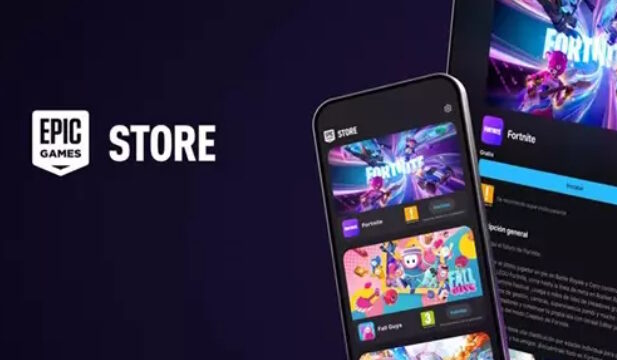California — In a world increasingly dominated by the sleek devices in our hands, the unseen battle over app distribution intensifies. Today, Epic Games—a name synonymous with the gaming revolution—stepped onto the legal battlefield once again, this time accusing Google and Samsung of blocking third-party app stores on their devices in a calculated move to stifle competition.
As I read through Epic’s complaint, I couldn’t help but feel the weight of this fight. It’s not just about apps, or even about corporate monopolies. It’s about something deeper, something that matters to all of us who’ve ever tried to break free from a system that feels rigged. Epic’s stand is a personal one—a stand for freedom in a digital world where the rules are made behind closed doors.
The Core of the Battle: Samsung’s Auto Blocker and the Restriction of Choice
Samsung’s latest operating system, Samsung Active, introduced a new feature innocuously named “Auto Blocker.” While it sounds like something designed to protect users from harmful software, Epic Games claims it’s more sinister. By default, this feature blocks the installation of any apps not coming from Samsung’s Galaxy Store or Google Play. For many users, this limits app installations from third-party stores like Epic’s own, leaving them with little choice.
Imagine for a moment that you’ve just purchased a brand-new smartphone—one that should open up new worlds of possibility. Yet, after unboxing it, you realize it’s as if the doors to some of those worlds have been locked, and the key is hidden in a 21-step process that few will ever bother to follow.
Epic’s President, Tim Sweeney, isn’t new to this fight. He’s been here before, going toe-to-toe with tech giants like Apple and Google, pushing for a future where app developers have the freedom to distribute their software directly, without being forced into ecosystems that take a cut of the profits. And today, that fight continues. But beneath the legal jargon and the headlines, there’s a deeper issue at play: who controls our choices in a world increasingly governed by technology?
The Monopoly Allegations: Google’s Grip on the Android Ecosystem
Epic’s lawsuit in a California federal court alleges that Google, alongside Samsung, is further tightening its grip on app distribution. The claim? That Google’s role in limiting app store alternatives through Samsung’s devices violates the spirit of a 2023 decision, which found Google guilty of maintaining a monopoly over Android’s app distribution.
It’s a story as old as competition itself—one giant growing so large it starts crowding out the others, using its weight to dictate the terms of engagement. For Epic Games, Google’s practices are emblematic of this, reinforcing a system where developers must pay steep commissions to sell their apps through the Google Play Store, or risk being left out entirely.
But there’s something profoundly human in Epic’s stance. It’s not just a company looking to line its own pockets. It’s about standing up to the giants, much like David with his slingshot, fighting for a more open and just marketplace. It’s a story of underdogs challenging a system that’s grown too powerful, too unchecked.
Samsung’s Role: Auto Blocker and the 21-Step Barrier to Freedom
In July of this year, Samsung made an update that turned its Auto Blocker feature into something far more insidious. Now, it’s not just an option—it’s the default. And turning it off isn’t easy. Users must navigate through 21 steps to install third-party apps from outside Samsung’s or Google’s stores.
If you’ve ever been lost in the settings menu of a smartphone, you can imagine how daunting that is. It’s a maze designed to keep most people from even trying. In practical terms, it means that for the average user, the idea of downloading Epic’s app store—or any other third-party app store—is as distant as a dream.
And yet, it’s not just about apps. It’s about freedom. It’s about being able to make choices for yourself, about how you use the technology you own. And at its core, this lawsuit asks a fundamental question: Shouldn’t your phone work for you, not the companies that made it?
Epic’s Global Fight: The Battle Moves Beyond the U.S.
What’s clear from today’s lawsuit is that this battle won’t end in a California courtroom. If necessary, Epic Games is prepared to take this fight to courts in Europe and Asia, challenging Samsung and Google’s practices on a global scale.
There’s something inspiring in that. Epic isn’t backing down. And in a world where tech giants often seem untouchable, there’s power in knowing that someone is willing to stand up and say, “No more.” They’re fighting not just for themselves, but for a future where choice and competition aren’t stifled by the companies that hold the keys to the digital world.
For those of us watching from the sidelines, this isn’t just Epic’s battle. It’s ours too. Because the outcome of this case will help define what the future of app distribution looks like—for developers, for consumers, and for the tech world at large.
Call for Change: The Importance of a Free Digital Market
Epic Games’ struggle speaks to a larger truth. In a world where digital ecosystems are increasingly closed, where our choices are dictated by a few massive companies, there’s a need for change. We need open systems, where developers have the freedom to innovate without paying exorbitant fees, and where users aren’t forced into walled gardens.
As we navigate this new world, filled with the promise of innovation and creativity, we must ask ourselves: What kind of future do we want? One where a handful of companies dictate our choices, or one where we are free to explore new ideas, new apps, and new possibilities?
Epic’s fight is about that freedom. And while the courtroom battle will rage on for months—maybe even years—its significance goes far beyond the legal briefs and the headlines. It’s a fight for the very soul of the digital world.


